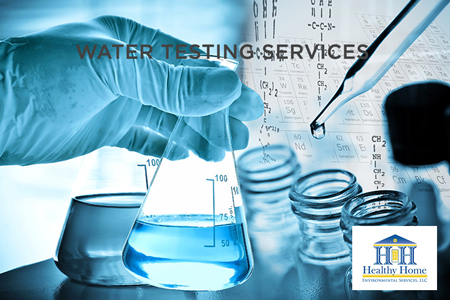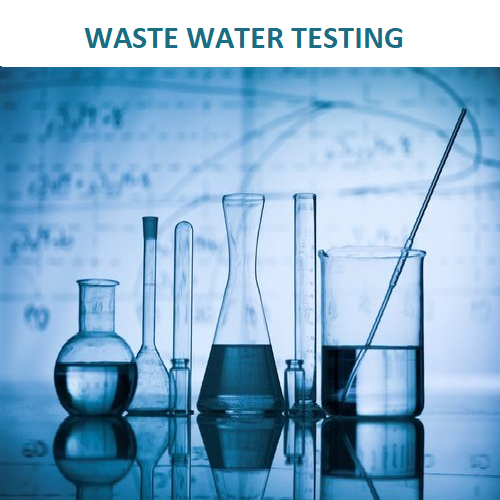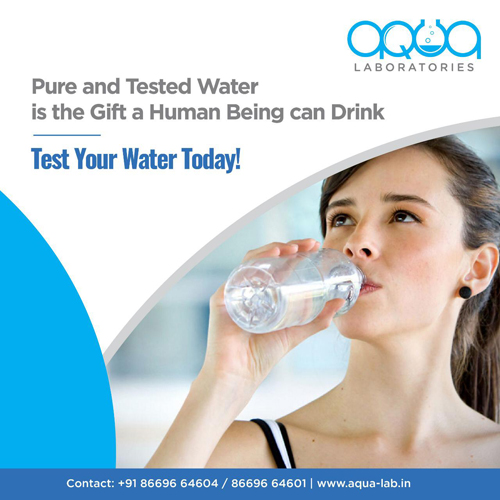Learn Just How Water Testing Can Spot Pollutants and Protect Your Household's Health
Comprehending the value of water screening is vital for protecting your family's health and wellness, as our supply of water can nurture hidden dangers. From germs to hefty steels, impurities position serious risks, usually undetectable without correct analysis. By discovering the auto mechanics of water testing, one can uncover the invisible hazards hiding in seemingly beautiful water resources. Yet, exactly how do you establish which tests are essential for your family, and what actions should be taken once prospective risks are exposed? As we navigate these concerns, the path to making sure water safety and security and a healthier living atmosphere ends up being clearer.
Importance of Water Testing
Identifying the vital role water plays in maintaining life, the significance of water testing can not be overstated. Making sure that water is complimentary from dangerous substances is vital for preserving healthy and balanced communities and environments. Well water testing services.
Water screening acts as a proactive procedure to identify possible hazards that might endanger water high quality. Via methodical evaluation, it aids detect physical, chemical, and organic criteria that could pose dangers to human health and wellness. Regular screening enables the early detection of issues, helping with timely interventions to stop widespread contamination and connected illness.
Furthermore, water screening sustains governing compliance, making sure that water service providers satisfy recognized safety standards and standards set by governmental authorities. It cultivates openness and liability, developing public trust in the water system. In addition, screening gives valuable data that educates water monitoring techniques, making it possible for lasting use and conservation of this valuable resource.
In significance, water testing is an important tool that safeguards public wellness, makes sure regulative adherence, and promotes the lasting administration of water sources. Its value in protecting both communities and people can not be ignored.
Common Water Contaminants
Amongst the various components that can endanger water high quality, usual water contaminants consist of a series of physical, chemical, and biological materials that posture considerable threats to human health and the setting. Physical contaminants commonly entail debris or natural products suspended in water, which can influence quality and preference. Chemical contaminants include a large range of substances, including pesticides, herbicides, metals like lead and mercury, and commercial chemicals. These chemicals can infiltrate water supplies with agricultural drainage, commercial discharges, or leaching from pipes and tank.
Organic pollutants, largely bacteria, infections, and protozoa, emerge from animal and human waste going into water systems. Virus such as E. coli, Giardia, and Cryptosporidium are infamous for creating intestinal ailments and can be particularly hazardous to kids, the elderly, and those with jeopardized body immune systems. Nitrites and nitrates, often stemming from fertilizers, position another health and wellness threat, specifically to babies, potentially causing conditions like methemoglobinemia or "blue baby syndrome."
Additionally, arising impurities, consisting of pharmaceuticals and individual treatment products, have elevated problems as a result of their determination and unknown long-term effects. Recognizing these impurities is critical for carrying out efficient water treatment strategies and ensuring safe alcohol consumption water.
Exactly How Water Testing Functions
Recognizing the spectrum of impurities in water highlights the significance of reliable testing methods to guard public health. Water testing is a systematic procedure designed to identify and measure different pollutants that can pose dangers to human health.
When examples are accumulated, they undertake lab evaluation making use of numerous techniques. Chemical screening frequently includes spectrometry or chromatography, both of which can determine and measure specific chemical substances. For microbiological screening, approaches such as membrane filtering or enzyme substrate tests are made use of to spot pathogenic bacteria. Furthermore, physical qualities like turbidity, shade, and ph are analyzed to offer insight into the general quality see this here of the water.
The specific methods utilized in water testing depend on the particular contaminants of concern and the water's intended use. By regularly applying these strenuous screening procedures, researchers and public health officials can make sure the security try this website and quality of water, thereby shielding areas from prospective health threats.
Choosing the Right Test
The initial action is assessing the water source-- be it community, well, or surface water-- as each has unique risks. Community water may need screening for disinfectant results, while well water may require screening for nitrates, bacteria, and heavy metals.
Following, take into consideration ecological factors and current occasions. Nearby agricultural activities might require screening for chemicals and herbicides, whereas commercial zones might require checks for chemical pollutants. Additionally, any kind of adjustments in water appearance, odor, or taste must motivate details screening for usual impurities like lead, chlorine, or organic virus.
Professional water testing services provide detailed sets that target a wide variety of prospective contaminants. These kits commonly align with criteria set by the Environmental Security Firm (EPA) or neighborhood wellness departments. For a more tailored method, speaking with a water quality specialist can offer insights right into which certain tests are needed based upon regional problems and private health requirements, ensuring the security of your family's wellness.

Preserving Water Safety

In enhancement to testing, appropriate upkeep of water supply plays an essential duty. This consists of examining and servicing pipes systems, storage space containers, and septic tanks to avoid leakages or backflow that could introduce contaminants - Water Testing Services Near Me. Utilizing water purification systems made to resolve details regional issues can further safeguard versus contaminations, supplying an added layer of security
Public understanding and education are just as important in keeping water security. Communities should be notified regarding potential threats related to neighborhood water sources and the essential actions to reduce them. Urging public redirected here engagement in water safety and security efforts fosters a cumulative responsibility that enhances general effectiveness.
Eventually, a comprehensive approach that incorporates routine testing, system maintenance, and area participation is vital in protecting water top quality. By doing so, family members can be assured of tidy and risk-free water, protecting their wellness and well-being.

Final Thought
Normal water screening is important for determining pollutants such as microorganisms, heavy metals, and chemicals that pose health risks. By examining water examples, undetected hazards can be discovered, guaranteeing the provision of risk-free alcohol consumption water.
Comprehending the relevance of water screening is crucial for guarding your family members's health and wellness, as our water supply can harbor hidden risks.Water testing offers as an aggressive step to recognize prospective risks that may endanger water top quality.Moreover, water screening supports regulatory conformity, ensuring that water providers meet well-known security criteria and standards set by governmental authorities. Municipal water could call for screening for disinfectant byproducts, while well water might require testing for nitrates, germs, and hefty steels.
Regular water screening is a critical component in keeping the high quality of water sources, making it possible for prompt treatments prior to contaminants get to unsafe levels.